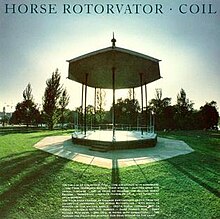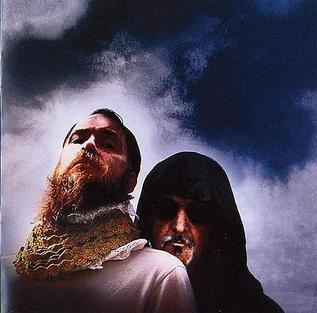
Coil were an English experimental music group formed in 1982 in London and dissolved in 2005. Initially envisioned as a solo project by musician John Balance, Coil evolved into a full-time project with the addition of his partner and Psychic TV bandmate Peter Christopherson, formerly of pioneering industrial music group Throbbing Gristle. Coil's work explored themes related to the occult, sexuality, alchemy, and drugs while influencing genres such as gothic rock, neofolk and dark ambient. AllMusic called the group "one of the most beloved, mythologized groups to emerge from the British post-industrial scene."

Peter Martin Christopherson was an English musician, video director, commercial artist, designer and photographer, and former member of British design agency Hipgnosis.

Fixed is the second extended play (EP) by American industrial rock band Nine Inch Nails. It was released on December 7, 1992, by Nothing, TVT, and Interscope Records. It serves as a companion release to Broken (1992), and includes remixes by Coil, Danny Hyde, JG Thirlwell, and Butch Vig, as well as then-live band member Chris Vrenna.

Scatology is the debut studio album by English experimental music group Coil. It was recorded at various studios in London during 1984 and produced by the band along with JG Thirlwell; the album features a prominent appearance of Stephen Thrower, who subsequently became an official member of Coil starting with the group's following album, Horse Rotorvator. Despite its title, the album focuses on alchemy, mainly an idea of turning base matter into gold. The record contains a wide array of cultural references, including to people such as Marquis de Sade, Alfred Jarry, Salvador Dalí, Charles Manson, and others.

"Panic" and "Tainted Love" are songs recorded by British experimental music band Coil. These were released in 1985 through Some Bizzare in the UK and Wax Trax! Records in the US respectively, as the band's first single, and the sole one from their 1984 debut studio album, Scatology. Originally released on twelve-inch vinyl discs, the single was regarded as the first AIDS benefit release, and has been reissued several times on compact discs.

Walls of Jericho is the debut studio album by German power metal band Helloween, released in 1985 on LP by Noise Records. It is the only album featuring Kai Hansen as lead vocalist until 2021's Helloween, although he would continue to act as guitarist on the two following albums.
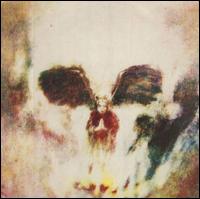
The Unreleased Themes for Hellraiser was the fourth album that Coil released in 1987. The album was released on CD, cassette and 10" vinyl. It was the proposed soundtrack to the film Hellraiser, but was turned down because it was not considered commercial enough.

Unnatural History is a compilation album produced by Coil, including tracks that originally appeared on various compilations and limited edition releases along with some previously unreleased material. The compilation contains material from 1983–1986, but was only released in 1990. It would become the first in a series of compilation albums with the releases of Unnatural History II and Unnatural History III.

Love's Secret Domain is the third studio album by the British experimental band Coil, released in 1991. The singles released from the album were "Windowpane" and "The Snow". Guest vocalists include Marc Almond on the song "Titan Arch" and Annie Anxiety on the song "Things Happen".

How to Destroy Angels is a remix album by Coil. All of the songs are remixes from the 12" single of the same name, and features cover artwork by filmmaker Derek Jarman. The remixes were produced by John Balance, Peter Christopherson, and Steven Stapleton of Nurse with Wound. The song "Absolute Elsewhere" is blank and silent, as it was originally released. It is portrayed in this release as a single second of silence.

Musick to Play in the Dark Vol. 1 is a studio album by Coil that was released in September 1999. It is the first album in the Musick to Play in the Dark series, with the second volume being released in 2000. It was remastered by Drew McDowall and reissued by Dais Records in 2020.

Gold Is the Metal (With the Broadest Shoulders) was the third album released by Coil, in the year 1987. It is not a proper follow-up to 1986's Horse Rotorvator, but more a collection of outtakes and demos from the Scatology, Horse Rotorvator and Hellraiser soundtrack sessions. Some obviously correspond to earlier and later released material ("Golden Hole" to "Penetralia", "...Of Free Enterprise" to "Herald", etc.), while others ("Boy in a Suitcase") do not appear anywhere else. "The Last Rites of Spring" includes a sample by Stravinsky, also used extensively in "The Anal Staircase".

The Ape of Naples is the final studio album by English experimental group Coil. It was released on 2 December 2005 in the UK and Thailand by Threshold House, and has subsequently been reissued by multiple labels since. The album was a definitive effort by primary Coil member Peter Christopherson to rework and remix material from 1993 to 2004 into a coherent final record. It was produced and released following the death of co-lead artist and lead vocalist John Balance, who died on 13 November 2004, and the album was released in memory of him.
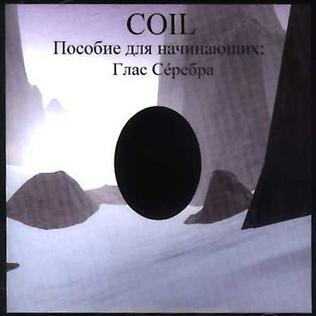
A Guide for Beginners: The Voice of Silver was one of two CD compilations released to mark Coil's first performance in Russia. It is a collection of their ambient music style works. The titles were devised by the Russian musician and Coil collaborator Ivan Pavlov.

Black Antlers is a studio album by the experimental band Coil. It was originally released in CD-R format in 2004 in a limited edition and was sold during their Even an Evil Fatigue mini-tour. The album was later re-edited by Peter Christopherson and expanded to include a second CD of two new tracks, as well as a new track on the first disc. The second edition was released in August 2006 on the same day as the expanded version of The Remote Viewer. Both reissues were mastered by Mark Godwin, printed in Thailand and feature high quality images and packaging. Although the original edition did not include a catalogue number, the reissue was given a catalogue number of THBKK2.
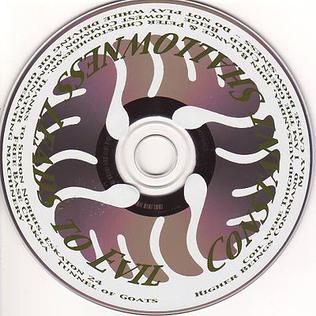
Constant Shallowness Leads to Evil is a CD by Coil, released the same year as Queens of the Circulating Library. Like Queens, this album originally came packaged only in a pink c-shell case, with no official cover art except the on-disc printing.

Live One was a double live album released by Coil. This CD was the fourth of four releases in a series. Its counterparts are Live Four, Live Three and Live Two. This album was later released as part of Coil's box set The Key to Joy Is Disobedience.
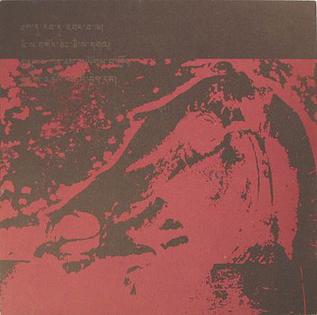
Nightmare Culture is a 12" split vinyl EP by Current 93 and Sickness of Snakes, which was John Balance and Peter Christopherson from Coil and Boyd Rice.

Live in Porto is the "authorised bootleg" of a live performance by Coil, which took place on 21 June 2003 at the Casa da Música Festival, Porto, Portugal. At this show, Coil were Peter Christopherson, Thighpaulsandra and Ossian Brown. Jhonn Balance was too sick to attend, as in case of Montreal concert at MUTEK Festival.

Transient Random-Noise Bursts with Announcements is the second studio album by English-French rock band Stereolab, released on 10 August 1993 and was issued by Duophonic Records and Elektra Records. It was recorded with an expanded line-up, and is generally considered to be the band's noisiest release due to its emphasis on distorted guitars and keyboard sounds.
